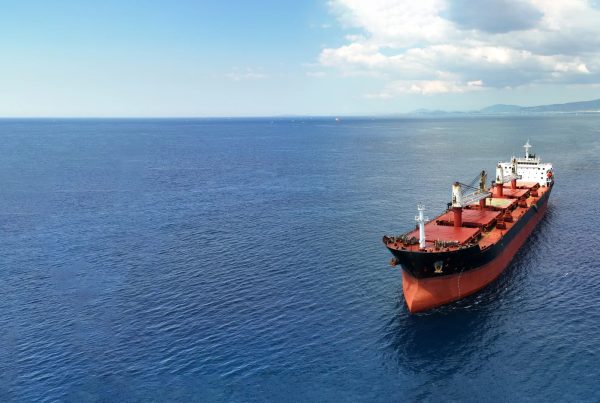Comoros: Paths to Possible Economic Development
The Comoros archipelago, located in the Indian Ocean off the eastern coast of Africa, is a small island nation with significant potential for economic development despite its numerous challenges. This article explores the current economic situation in Comoros, the hurdles it faces, and potential paths towards sustainable development. We will delve into areas such as agriculture, tourism, fisheries, renewable energy, and international cooperation to outline how Comoros can leverage its assets for economic growth and development.
1. Current Economic Landscape
Comoros is one of the smallest countries in Africa in terms of both area and population. It has a gross domestic product (GDP) that reflects its size, with agriculture being the backbone of its economy, supporting a large portion of the population. However, the nation faces significant economic challenges, including limited natural resources, a narrow economic base, high unemployment rates, and vulnerability to external shocks such as global market fluctuations and climate change.
2. Challenges to Economic Development
The Comorian economy confronts several obstacles that impede its growth:
– Geographic Isolation: The country’s isolated location increases transportation and import costs, limiting trade opportunities.
– Vulnerability to Natural Disasters: As an island nation, Comoros is susceptible to cyclones, volcanic eruptions, and climate change effects, impacting its economy and development.
– Limited Infrastructure: Poor infrastructure, particularly in transportation and energy, hampers economic activities and growth.
– Political Instability: Periodic political unrest has deterred foreign investment and affected economic stability.
3. Potential Economic Sectors for Growth
Despite these challenges, Comoros holds potential in various sectors that could drive its economic development:
– Agriculture: Agriculture remains a critical sector, with spices such as vanilla, cloves, and ylang-ylang being major exports. Investing in modern agricultural techniques and value addition can enhance productivity and export earnings.
– Tourism: The country’s natural beauty, including pristine beaches and marine biodiversity, presents an opportunity for tourism development. Developing eco-friendly tourism and preserving cultural heritage could attract more visitors, generating income and employment.
– Fisheries: The surrounding Indian Ocean is rich in marine resources. Sustainable development of fisheries and aquaculture can increase food security and export revenues.
– Renewable Energy: Comoros has potential for renewable energy, including solar, wind, and geothermal energy. Developing these resources can reduce dependence on imported fuels and promote energy sustainability.
– Digital Economy: Leveraging digital technologies can enhance economic efficiency, improve public services, and open up new markets for local businesses.
4. Strategic Recommendations for Economic Development
For Comoros to realize its economic potential, it must adopt a multi-faceted approach:
- Strengthening Infrastructure: Investing in critical infrastructure, especially in transportation and energy, is essential to support economic activities and attract investment.
- Promoting Good Governance and Stability: Political stability and transparent governance are crucial to attracting foreign investment and aid, which are vital for economic development.
- Enhancing Education and Skills Development: Improving education and vocational training can equip the population with the skills needed for the jobs created by economic growth, especially in emerging sectors.
- Fostering International Cooperation: Partnerships with international organizations and countries can provide the technical and financial assistance needed for development projects.
- Adopting Sustainable Practices: Emphasizing sustainable development, particularly in agriculture, fisheries, and tourism, can ensure long-term economic health and environmental preservation.
Strengthening Infrastructure
Investing in infrastructure is critical for the economic development of Comoros. Improved transportation systems, such as roads, ports, and airports, are essential for facilitating trade and tourism. Additionally, enhancing the energy infrastructure to ensure reliable and affordable access to electricity is crucial for businesses and households alike. The World Bank emphasizes the role of infrastructure development in boosting economic growth and reducing poverty by enhancing access to services and markets (World Bank, 2021). Comoros could seek partnerships and funding from international development agencies to undertake such infrastructure projects.
Promoting Good Governance and Stability
Political stability and effective governance are foundational for attracting foreign investment and fostering economic development. The African Development Bank (AfDB) notes that good governance, characterized by transparency, accountability, and rule of law, is pivotal for creating a conducive environment for economic activities (African Development Bank, 2019). Comoros can learn from the experience of Rwanda, which, post-1994 genocide, has made significant strides in governance reforms, leading to economic growth and stability (International Monetary Fund, 2020).
Enhancing Education and Skills Development
Education and skills development are key to preparing the workforce for the jobs of tomorrow, especially in a small economy like Comoros. Investing in education, particularly in vocational and technical training, can equip young Comorians with the necessary skills for sectors such as tourism, digital technologies, and renewable energy. The example of Singapore, which transformed its economy through a strong focus on education and skills development, demonstrates the importance of aligning educational outcomes with market needs (World Economic Forum, 2018).
Fostering International Cooperation
International cooperation can provide Comoros with the technical and financial assistance required for development projects. Engaging with international organizations, such as the United Nations Development Programme (UNDP) and the World Bank, as well as bilateral partners, can help secure the investments needed for economic development initiatives. The success of the Maldives in leveraging international support for its development projects, including those aimed at climate change adaptation and sustainable tourism, offers valuable lessons for Comoros (United Nations Development Programme, 2021).
Adopting Sustainable Practices
Sustainable development practices ensure that economic growth does not come at the expense of the environment. For Comoros, this means adopting sustainable agricultural practices, responsibly managing fisheries, and promoting eco-friendly tourism. The concept of the “Blue Economy” is particularly relevant for island nations like Comoros, focusing on the sustainable use of ocean resources for economic growth, improved livelihoods, and jobs while preserving the health of ocean ecosystems (World Bank, 2017). Seychelles’ pioneering blue bond, aimed at financing marine and fisheries projects, is an innovative approach that Comoros could explore (The Seychelles’ Blue Bond, 2018).
The path to economic development for Comoros involves a multifaceted strategy that addresses infrastructure, governance, education, international cooperation, and sustainability. By drawing lessons from other nations and leveraging support from the global community, Comoros can create a robust framework for sustainable economic growth. These strategic recommendations, rooted in global best practices and tailored to the unique context of Comoros, offer a roadmap for overcoming its developmental challenges and achieving long-term prosperity.
Comoros faces a challenging economic environment characterized by various structural issues and external vulnerabilities. However, by capitalizing on its strengths and opportunities, particularly in agriculture, tourism, fisheries, renewable energy, and leveraging digital technologies, Comoros can pave the way for sustainable economic development. Essential to this endeavor will be investments in infrastructure, education, and governance reforms, as well as international cooperation and a commitment to sustainability. With these efforts, Comoros can overcome its challenges and embark on a path of economic growth and development, ensuring a prosperous future for its people.





